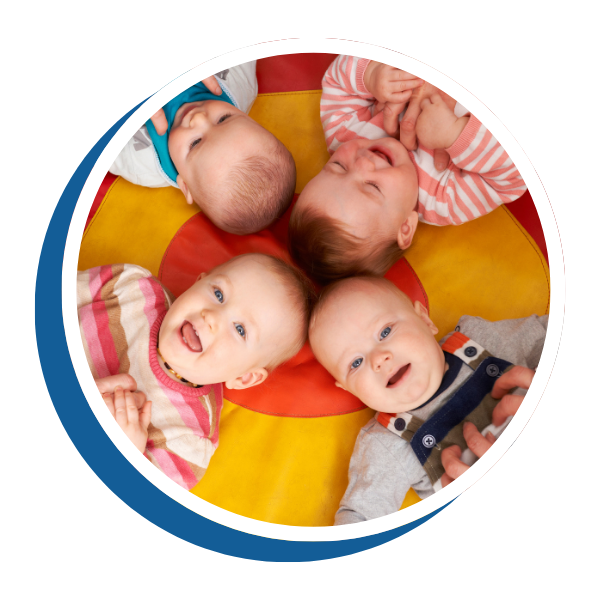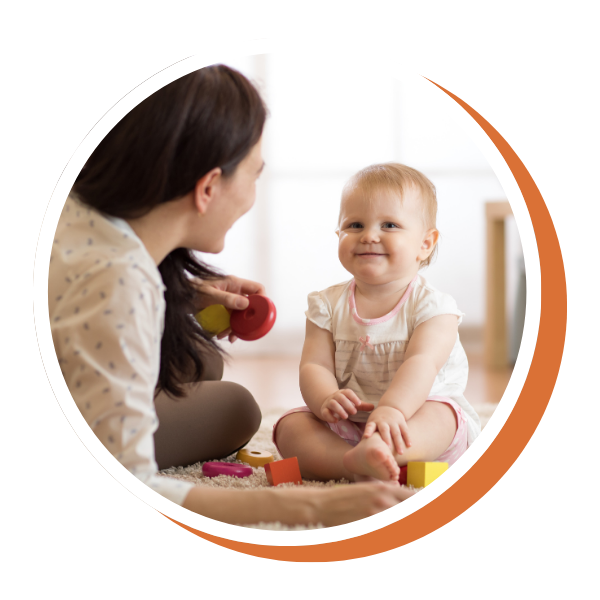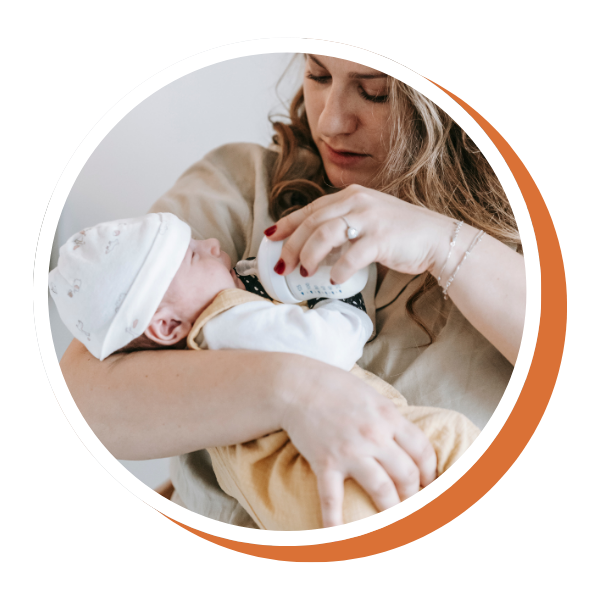Nido Classroom (Infants)
Your baby's first discoveries are the most important. At Patience Montessori in Boulder, our Montessori infant program is designed to honor this unique time of rapid growth and exploration. We provide a peaceful and thoughtfully prepared environment where your little one can move, explore, and learn at their own pace, supported by our experienced and compassionate educators. This isn't just a place to be cared for — it's a place to thrive. Schedule a tour to see how we prepare the space for your little one!
A Nurturing Space for Infants: 6 weeks to 18 months
Patience Montessori School has created a special Nido program (In Italian, Nido means “nesting” which appropriately connects to the theme in the classroom). This carefully designed environment offers a peaceful and secure space, meticulously prepared to support your infant’s budding independence. We try our best to meet the needs of the parents because we understand that every parent has certain views about the different aspects of childcare, and what is most beneficial to their child.
Introducing Your Infant to the Classroom
We help parents to make a smoother transition for their children in new child care arrangements. During your child’s first week, we recommend you spend some time with the child at our school to ensure a smooth transition. We issue daily reports, which relay when all the feedings and activities took place. The child’s general mood disposition is also recorded for your knowledge.
This level of open communication is foundational to our Montessori daycare approach. It allows us to build a strong partnership with you, ensuring a consistent and nurturing environment for your child both at home and in the classroom. When children feel secure and their needs are consistently met, they are empowered to explore their surroundings and begin a lifetime of joyful learning!
Nido Classroom Curriculum
Our curriculum for infants is focused on developing and strengthening 5 key areas - Gross Motor Skills, Intellectual Stimulation, Social Development, Language and Self-Awareness. We offer several developmental activities for the children including:
Kickball – Helps to produce movements of the legs as well as the hands.
Turning and changing position – Helps to produce movement in the large muscle groups.
Offer objects at a reasonable distance – helps to produce movement in small muscle groups and also requires concentration skills.
Crawl games – Any game which helps to stimulate the crawling mechanisms of the baby.
Physical stimulation – To achieve simple body movements for mobile infants.
Our Approach to Infant Development
The first year of life is a time of foundational growth. At Patience Montessori, our Montessori Infant Program provides a nurturing environment where your baby can build the skills for a lifetime of joyful learning. Our curriculum focuses on key developmental areas, from intellectual curiosity to social and motor skills, ensuring a comprehensive and supportive start.
Gross Motor Skills & Self-Awareness
At this stage in life, young babies are developing at a very fast pace. Infants need a lot of gross motor activities to help develop and fine-tune gross motor skills. Self-awareness is also facilitated by helping with bottle-holding, finger foods, and picking up small objects as they learn to creep, crawl and walk
Intellectual
Stimulation
Interaction by verbal exchanges, playing music, making various noises, exploring objects for size, shape, color, texture, movement, position, and sound. Hiding objects for seek and find and motion games, which include clapping, singing, etc.
Social
Development
Interaction with familiar people, reassuring and nurturing at all times, close attention to pertinent activities, verbal communication, and approval, slow, simple, and non-threatening competitive games.
Language
Play with dolls and verbalize body parts (i.e. nose, ears, mouth, etc.), make noises during all interactions, name all objects consistently and constantly, give meaning when introducing new words, name body actions, read books, and look at pictures and interact with many fingerplays.
Dedicated and Experienced Staff
Our team of dedicated and experienced caregivers provides consistent, loving care, which is the cornerstone of our Montessori infant care program. Every member of our staff is not only passionate about early childhood development but also trained to observe and respond to your baby's unique needs with warmth and empathy. We build strong, personal bonds with each infant, creating a secure and trusting atmosphere that feels like a second home from the very first day.
At Patience Montessori, the well-being and happiness of your child are our highest priority, and our staff works diligently to ensure their positive experience every day. To meet our caring team and learn more, start by scheduling a tour!
Building a Strong Parent Partnership
We believe a strong partnership between home and school is absolutely vital for your child’s success. Our educators work closely with every family from day one, taking the time to understand your unique needs, routines, and goals for your child. This collaborative foundation ensures we can provide personalized, responsive care that complements your parenting style.
Open communication and shared commitment to your child's growth create a seamless and consistent experience that is deeply reassuring for them. When a baby feels secure in both their home and school environments, they are empowered to explore, learn, and develop with confidence!
Discover Our Montessori Infant Daycare
Choosing the right Montessori infant daycare is one of the most significant decisions you will make for your child's early development. At Patience Montessori, we understand this deeply. Our program is a profound commitment to your child’s individuality, guided by the proven principles of the Montessori method. We are not just a care facility; we are a nurturing community dedicated to providing a high-quality program that supports your baby's intellectual, emotional, and social growth.
By fostering independence and curiosity from the very beginning, we are setting a powerful foundation for a lifetime of learning. We invite you to experience this unique environment firsthand. Schedule a tour to see how our prepared spaces and dedicated educators make a tangible difference in the lives of our youngest learners!
 (303) 449-5214
(303) 449-5214









